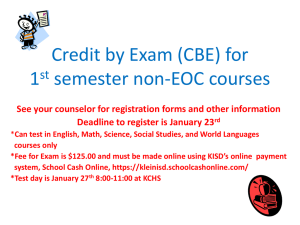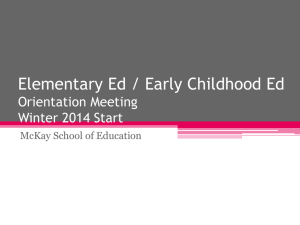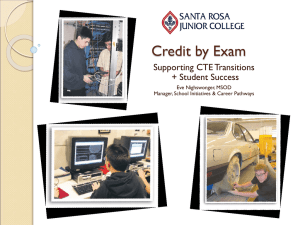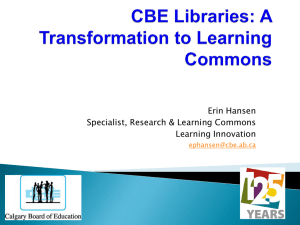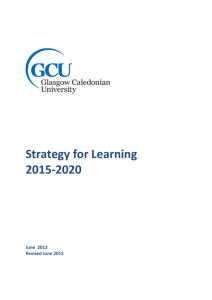Status of the CBE policy - Ghana Venskabsgrupperne i Danmark
advertisement
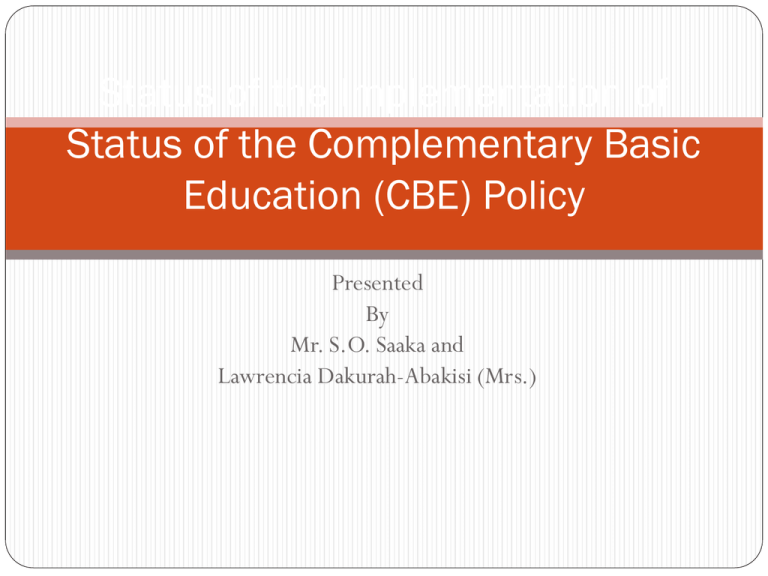
Status of the Implementation of Status of the Complementary Basic Education (CBE) Policy Presented By Mr. S.O. Saaka and Lawrencia Dakurah-Abakisi (Mrs.) Introduction Having implemented the functional literacy programme for out-of-school children in the Northern region for over 15 years, School for Life realized the dire need to extend complementary education to outof-school children through out the rest of the country. This would ensure that the about 800,000 out-ofschool children nation wide would be given the opportunity to have full cycle of basic education through structured programmes of learning outside the formal school system. CBE Policy • SfL therefore embarked on an advocacy drive to get the Government, MoE/GES come out with a policy for the achievement of this objective. • Through meetings, lobbying, presentations, collaboration and networks with relevant organizations, Government and individuals, the MoE/GES saw the need for complementary education and so the CBE policy came into being. • Initially, CBE was to come under the Non Formal Education Division. However, after presenting a position paper to MoE, which was later buttressed by GNECC, CBE has now been appropriately placed under the Basic Education Division. Challenge to the Implementation of the Policy. • The major challenge currently is the delay in its implementation. • MoE/GES has indicated that funding is a problem and this is stalling the process of implementation of the policy. Funding CBE Policy Cont. With funding from UNICEF, MoE/GES has completed drafts of the Annual Complementary Education Operation Plan (ACEOP) 20102012 and the Complementary Education Strategic Plan 2010-2020, Strategies and Work Programme. These will be shared with stakeholders to solicit their inputs. The stakeholders’ workshop in the three Northern Regions has been scheduled for November 2010. CBE Cont. SfL is currently supporting MoE/GES to organize the stake holders’ workshop. A list of organizations to participate in the workshop has been submitted to GES Headquarters. This includes; SfL collaborators, allies, NGOs in education and Regional and some District Directors of Education in the three regions in the north. Actual implementation should start in 2011. So SfL will continue to lobby, network and strengthen alliances in the effort to get Government expedite the implementation process. SfL Piloting of CBE • Whiles SfL waits for the Government to start the implementation of the policy nation wide, SfL has to start the piloting of CBE in two districts. Mgt has therefore started to visit, hold meetings/discussions with some Development Partners to explore the opportunities for funding. • A four member Team was in Accra in September 2010 to, among others, hold discussions with some Development Partners and Personnel of MoE/GES. The Team visited the World Bank office and met with the former Head of Education. He encouraged SfL to talk to DFID and UNICEF who are the lead Development Partners for Education. He expressed interest to be part of these discussions through the mail. Piloting CBE The Team also went to DFID. Discussions are on-going with the Chief of Education at UNICEF on the possibility of funding for CBE. Discussions with the Chief of UNICEF have led to further discussions with a Cost Consultant engaged by the Ministry of Education . Conclusion SfL will continue to move the discussions with Development Partner and other collaborators forward to speed up the process of funding and implementation of CBE. Thanks Thank you for your attention QUESTIONS? SfL as a Resource Centre Advocacy Strategies Introduction As a Resource Centre, SfL is providing technical support to organizations like Innovations for Poverty Action in the implementation of the Teacher Community Assistant Initiative project, among others. Through advocacy, SfL as a resource centre is being advertized internally and externally. However, there is still the need to embark on more vigorous advocacy to increase publicity and more coverage on the resource centre. The following advocacy strategies would therefore be considered: The SfL Resource Centre Advocacy Strategies: Launch of the Resource centre Continuous update of the website Development of a documentary on the Resource Centre. Development of a flyer on the Resource Centre. Media advertisements. The Empowerment for Life and SfL Newsletters Advocacy is one activity that is capital intensive Where the need arises for extra programme support for these activities, Mgt will explore other sources. Advocacy Strategies for SfL Approach Participate in coalitions, networks and alliances to promote mother tongue and CBE Disseminate relevant information on SfL Approach to stakeholders. E.g. Some contacts outside Ghana have been made in an effort to introduce SfL model of complementary education. Advocacy Strategies cont. Collate and share SfL best practices Participate in relevant meetings and workshops on CBE and other relevant education fora/events and monitor relevant developments such as the National Literacy Acceleration Programme (NALAP ) Conclusion The SfL approach will reflect in all the other advocacy strategies that have been outlined above for the SfL Resource Centre. Thank you. Questions?
